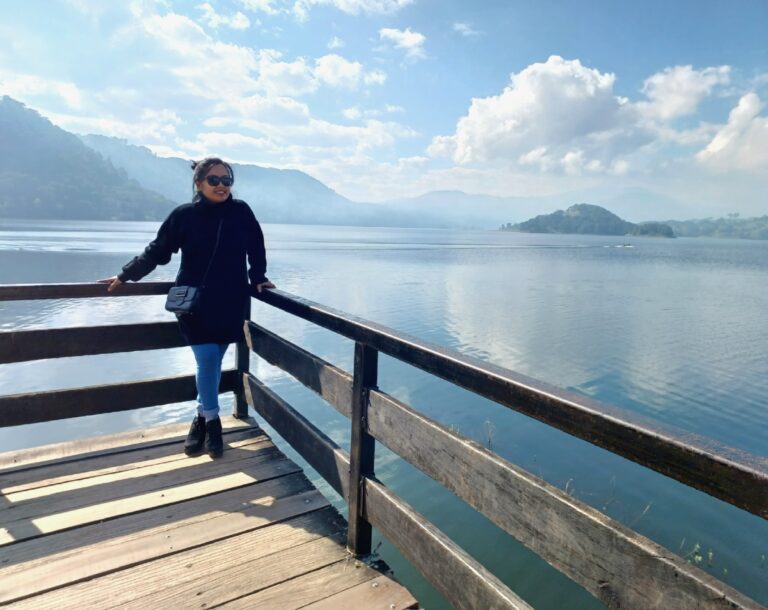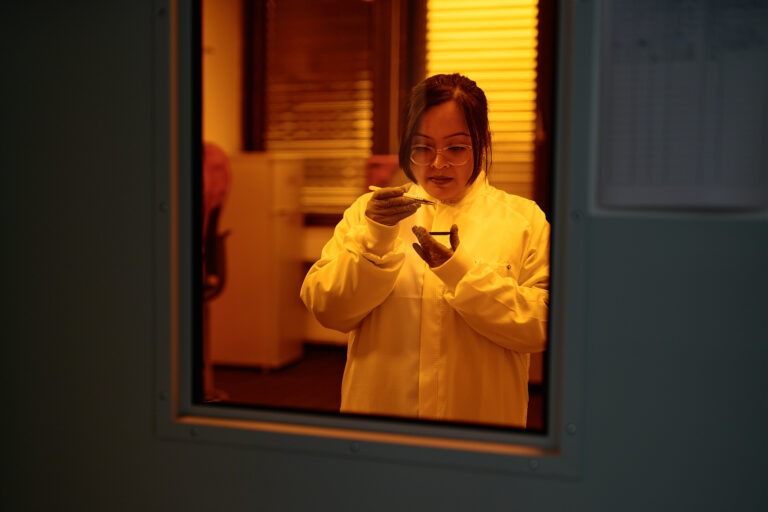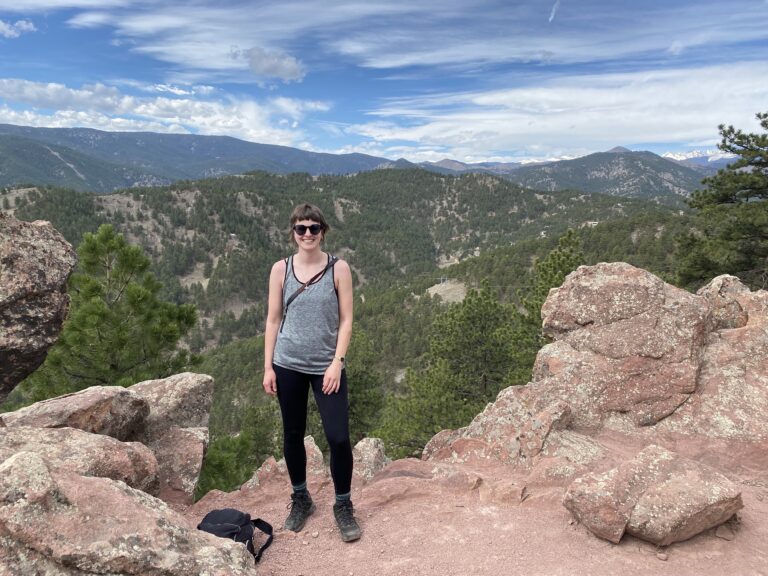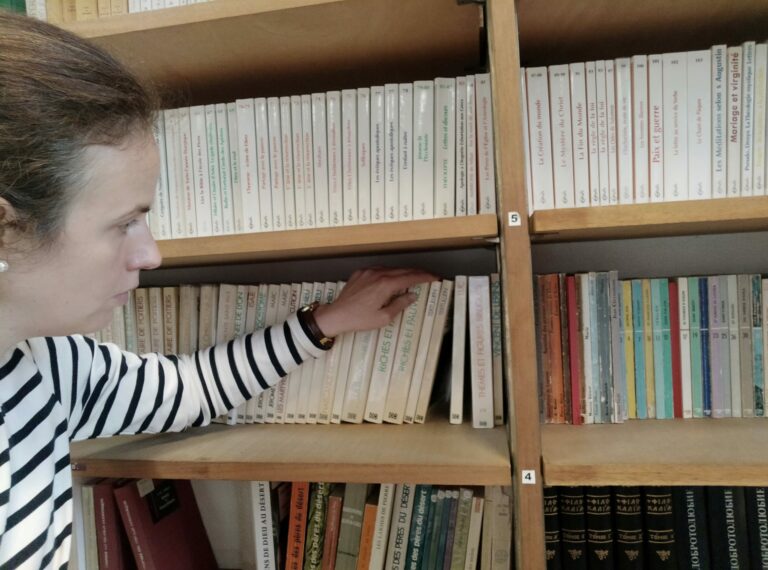
Taking ‘Green Thumb’ a Few Steps Further – an Interview with Plant Biologist Dr. Anna Podgórska
In the series “33 questions” we introduce, in no particular order, our WiRe Fellows who are currently working on a research project here at the University of Münster. Why 33? Well, if we think of the rush hour of life, it is kind of the age that lies in its middle. And we also like the number😉.
In today’s episode we are speaking with Anna, biologist and passionate lover of plants.

1. What motivated you to work in the field of plant physiology?
I wanted to get to know how life works, and understand what makes organisms grow, breathe, produce energy and so on.
2. Describe your daily work in three words
Lab experiments, plant growth, data analysis.
3. Describe your research topic in three words
Metabolism, redox, oxidative stress.
4. A good plant biologist needs…
Good basics in molecular biology.
5. How did you imagine your future as a child? What profession did you want to pursue?
From the beginning it was obvious for me that I was going to study. First, I wanted to do something with animals, later I wanted to become a dentist. In the end, all of that is not so far removed from biology.
6. How would you explain your research area and topic to a child ?
Plants are growing in the fields, and if something bad is happening to them they cannot just uproot and escape. They have to find mechanisms to react to all kinds of stress conditions. We want to understand how plants notice changes in their environment and how they can adapt.


7. Which (historical) important scientist would you like to have dinner with? What would you ask?
I would like to meet Marie Curie-Skłodowska, who is not only the most famous female scientist but is also Polish, and I’m fascinated by the determination she showed in her work. I would ask her how she dealt with failed experiments.
8. What was your biggest research disaster?
Every experiment that doesn’t work feels like a disaster.
9. What direct or indirect relevance does your research have for society?
I’m trying to find a plant fertilizer that is safer than the commonly used nitrate, which is ultimately dangerous not only for the ecosystem but also for human health. With our current use of nitrogen-based fertilizers, nitrate is easily washed out from the soil and goes on to contaminate water reservoirs, making it a serious global issue. Moreover, eating crops that were extensively supplied with nitrate can cause serious medical conditions.
A valid alternative could be ammonium-based fertilizers, which are more resistant to soil-leaching, but for unknown reasons this source leads to growth suppression in most crop plants. Therefore, to achieve sustainable agriculture we need to find a fertilizer balance for optimal plant nourishment.
10. What do you consider the greatest achievement in the history of science / your field?
The invention of cloning and polymerase chain reaction – PCR (Nobel prize 1993). Something so easy yet effective, and now it’s the basis of modern biology (also COVID tests!)
11. What is the best experience you have had as a scientist / researcher?
Maybe not the best, but a big relief was earning the PhD. Its just a title and after you have it you must continue with the work that you were doing before, but it takes the pressure out of it.




12. How did you survive your PhD time?
It was a good time actually, I had a lot of support from my family and an understanding supervisor.
13. What do you like most about the “lifestyle” of a scientist? And what least of it?
You are totally independent, from planning your day to selecting the methods and topics you want to work with. What I don’t like is that usually everything in the working process consumes a lot of time and you are always in a hurry to finish before it gets too late in the evening.
14. What makes you most happy about the world?
When you see people helping each other, you feel the world is still ok. And I’ve gotten a lot of help since I came to Münster.
15. How do you keep your head clear when you are stressed?
A moment with a piece of chocolate.
16. What is your favorite German word?
There are a lot of German sayings I like: “Sieben Tage Regenwetter,” “Urlaub auf Balkonien,” “mit Fingerspitzengefühl,” “der innere Schwinehund,” “Fremdschämen,” “Hamsterkauf,” “Verschlimmbessern” … Germans are really creative with these kinds of descriptive words, and to me these are typical for the language and sound really funny.
17. Which hobby have you given up for a life in academia?
Painting. Doing science easily kills your creativity.
18. What worries you most about the world?
People not caring about the environment.
19. What is your favourite TV series?
Friends!
20. If you could travel in time: in which epoch and at which discovery or event would you have liked to have been there?
Around 100 billion years ago, the time to experience dinosaurs. I would like to see if they really looked the way archeologists picture them.
21. What was the funniest moment you had in science?
Maybe it’s not funny but something that would happen in a movie. Once I caused a little explosion with liquid nitrogen getting trapped in a falcon tube while freezing plant tissues. It was quite loud and caused some damage.
22. Which experience in the world of science disappointed you most?
Realizing that there is no job market for scientists and that you basically need to find your own funding or a grant to continue your work. It was especially clear to me after getting the PhD, when you would like to continue your research and there is no way the University can hire you.

23. If time and money were no object: Which research project would you like to do?
I would like to examine nitric oxide production in plants, which are important molecules in terms of signaling. There is still not much known about this reactive nitrogen species and methodology is limited.
22. What is your favorite research discipline other than your own?
Maybe medicine, I like to read about health issues and therapies.
23. Which of your traits bothers you the most in your daily work?
Sometimes I want to do many things at once and rush things, and I think everybody knows that being in a hurry never helps.
24. And which of your traits help(s) you the most in your daily work?
Being precise is what is needed in the micro world of biology.
25. What is your favourite place to relax from research during the pandemic?
Not only during the pandemic, but it has always been my grandma’s lake house. After doing some garden work there, you wouldn’t have problems with sleeping.
26. If you had a daughter, what would you advise her not to do?
Not to give up so easily, sometimes it feels like hard work but in the end it’s always worth it.
27. What is the biggest challenge for you when it comes to balancing family and career?
Not only having the time to spend with my family but also having a free mind and not thinking too much about work.
28. How do you master this / these challenge(s)?
I have a lot of leave days, so I spend them with my family and try to make up for the time I was busy.
29. How often do you as a friend / partner / mother / daughter feel guilty when you have to meet a deadline – again?
Every time.
30. If you were the research minister of Germany, what would you do to improve the situation of women in science?
More flexibility for Professors, for instance no limits on getting a permanent position, no need to constantly move to a new University, limited teaching load and so on.


31. What are the advantages and disadvantages of doing a Research@home-WiRe-fellowship?
If you are staying in your familiar environment it makes this experience less stressful, you can avoid the struggle of finding accommodation and organizational stuff. The biggest disadvantage is that you don’t really get to know the people and the lab routine in the new place, which is always a cool experience.
32. What is your favorite place in Münster?
The green space in front of the castle. Even if you spend only a few minutes there during your lunch break you enjoy being outdoors, and can feel the vibe of the city with students hanging out on the lawn playing games or riding their bikes.
33. What is the biggest difference between the academic system you have last done research in and the academic system as you experience it in Münster / Germany?
In Münster I noticed a lot of individual teaching, every student gets a lot of attention.






